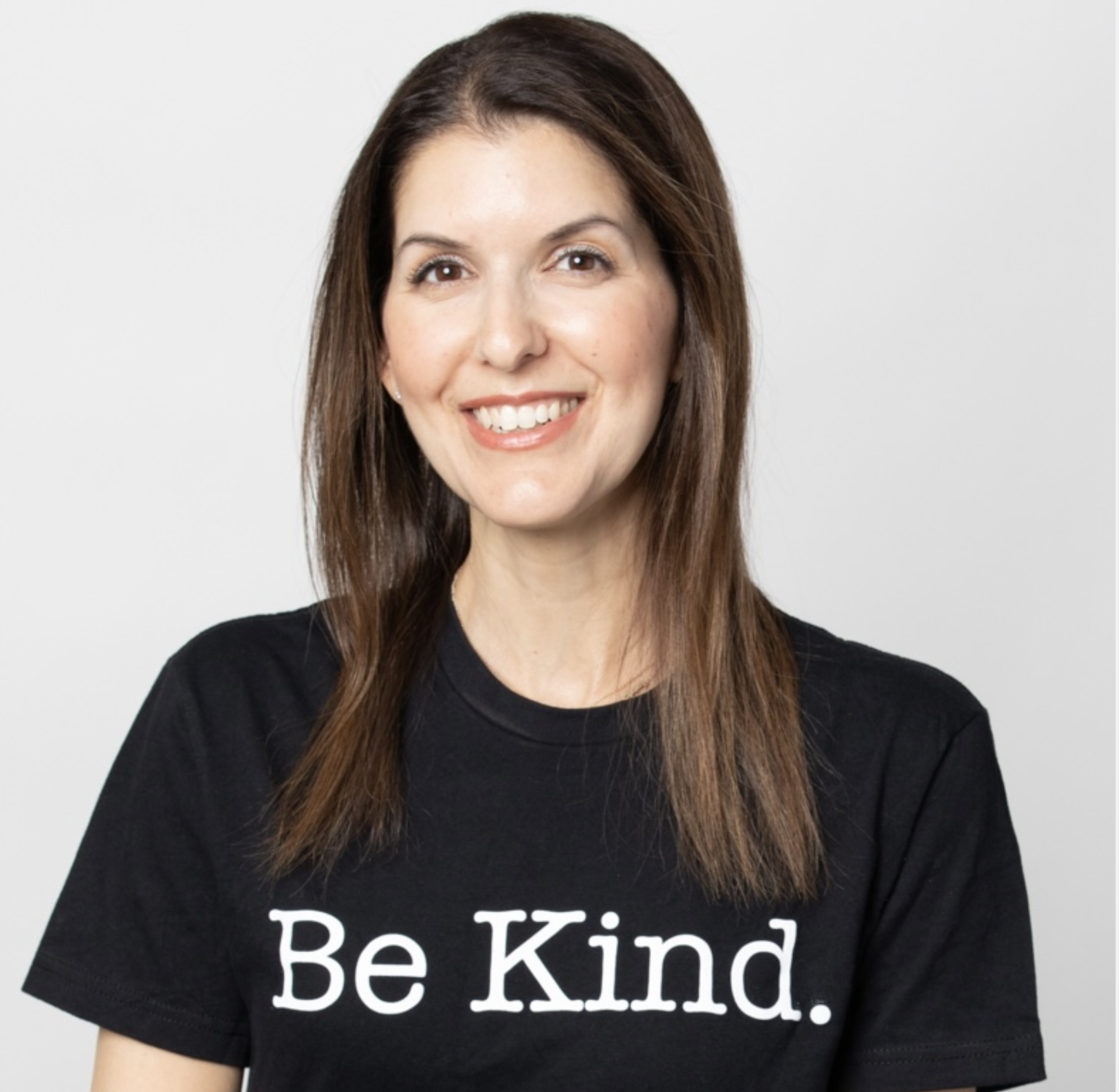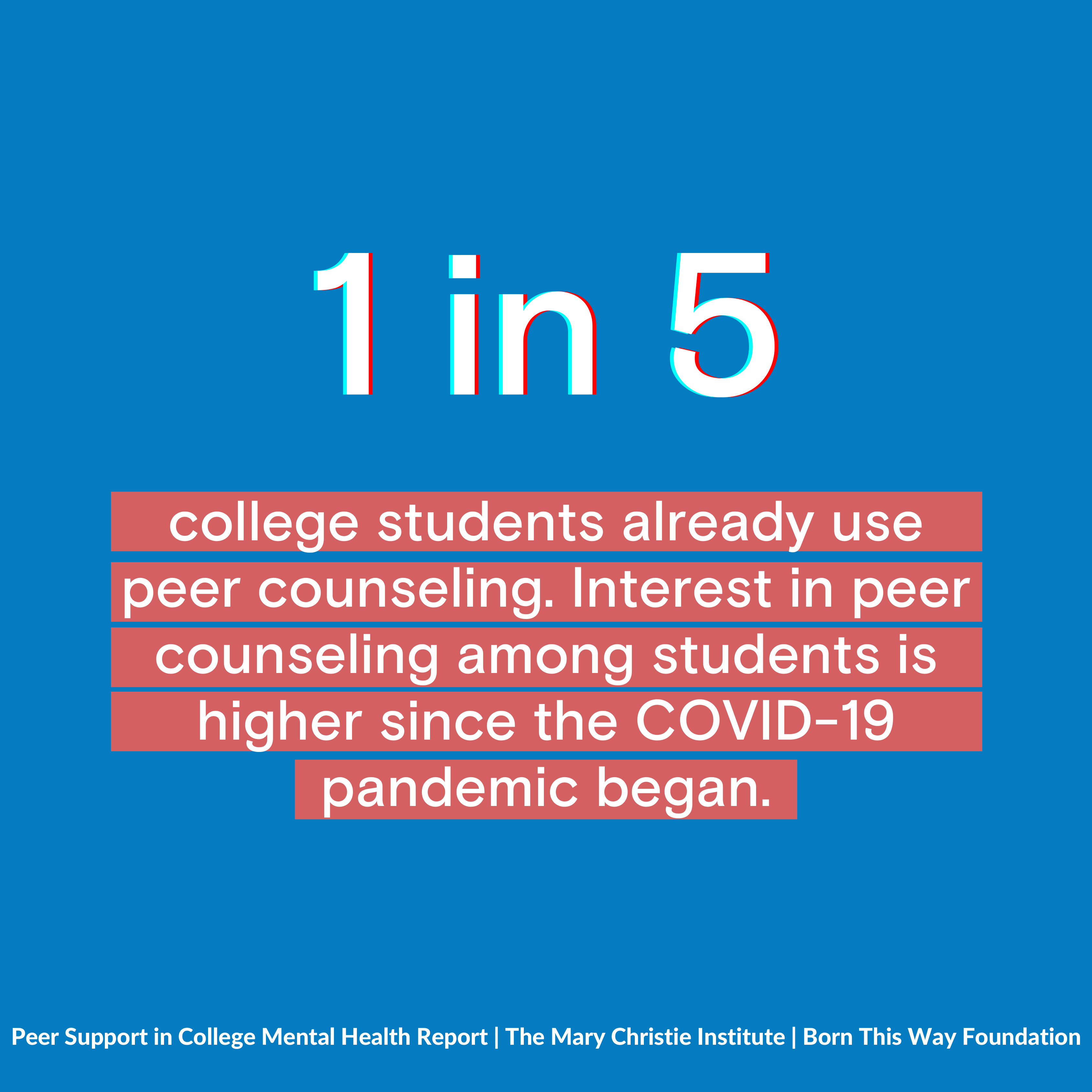I’m proud to share our latest report with you, Peer Counseling in College Mental Health, released in partnership with the Mary Christie Institute. As you know, our work is about raising awareness, increasing accessibility, and inspiring action to support mental wellness, and that work is informed, led, and guided by young people. This survey of over 2,000 American college students measures their attitudes toward, and participation in, mental health peer counseling, which is defined as “receiving support for your mental health from a trained peer, not a friend.”
A few highlights:
- College students need peer counseling, and have demonstrated clear interest in having it available on campus. One in five college students already use peer counseling (20%); of the 80% who have not used it, 62% say they would be interested in doing so. The most common reasons for seeking peer counseling are stress, anxiety, depression, social life issues, and loneliness.
- Culturally-competent peer counseling is important. Usage of peer counseling is higher among Black students (39%), Transgender students (39%), and first-generation students (29%), who are particularly likely to say it is “very important” to find a peer counselor with similar identities.
- College students want to be there for each other and benefit from providing peer support. Nearly half 45% of students who provide peer counseling report “helping others” as their main motivation. Those who provide peer counseling are more likely to score higher on a well-being scale than those who do not provide peer counseling.
- College students prefer to turn to each other. Two-thirds of students surveyed say they have faced a mental health challenge in the past year. 36% reported that if faced with a serious mental health issue, they would turn to a friend or romantic partner first.
- Interest in peer counseling has grown during the COVID-19 pandemic. Nearly half (48%) of students say the disruption caused by the pandemic made them more likely to seek out peer counseling, including 20% who say it has made them “much more likely.” This is particularly true for Black students (58% “likely”), Latinx students (54% “likely”), Transgender students (61% “likely”), and first-generation college students (54% “likely”).
Click here to read the full report.
It is my job (really, all of our opportunity and responsibility) to ask young people to check in on each other’s mental well-being, especially given the state of the world, but what does it mean to ensure youth have the knowledge and skills needed to offer trained mental health support? We learned through this survey that peer support programs are popular, needed, and even more in demand for students as the COVID-19 pandemic continues.
When you read this report, I hope you recognize this hopeful, engaged generation of young people prioritizes their mental health and they want to better support themselves and their peers. We look forward to working with advocates like you, nonprofit organizations, and academic partners to offer actionable, accessible resources so young people can be there for themselves and each other.











